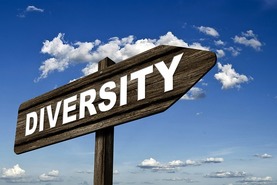What is a leader and is a leader the same as a manager?
This is a question that has puzzled many and the answer usually is a manager manages and a leader leads. Clear as mud!
Business dictionary defines a leader as "A person or thing that holds a dominant or superior position within its field, and is able to exercise a high degree of control or influence over others".
Is that the sort of leader I'd want to be known as? No!
And yet, this is a good definition.
In an interview with CIPD People Management (July 2017) Ram Charan says that HR's role is to encourage new leaders. But how do you spot them?
Well, apparently there are what he calls "signifiers".
1. They are high performing
2. They are compelled to continually look for new ideas that will make a significant difference.
3. They will make sure the ideas get implemented
Do you have people in your organisation that fit these signifiers?
So what, I can hear you say. What's the big deal about leaders?
Ram Charan says that "leaders make up 2% of an organisation, but have 98% of the impact."
Woah! Well that certainly breaks the 80:20 rule!
So how important is it for your organisation to have the right leader(s)? Very; right!
Organisations that get it right, find that they are more successful. They put these people in the right jobs and keep progressing their career.
In a highly competitive world the one significant difference organisations can make is with their people. With the way their employees work for them and their brand.
So my question to you is do you have managers where you should have leaders and leaders where you should have managers?
Have employees been promoted because they were good at their job? Are they equipped to be managers? If not there are many good training providers who can supply first line manager skills training courses. They can definitely learn to be a manager.
But, are these people in a role where they need to lead? Can they learn to be a leader? I'm not so sure that sending employees on a training course called "leadership skills" is the way to develop leaders.
So how do we develop leaders?
Believe me, this blog did not start out to be "salesy" and now it might sound a bit like that so apologies in advance.
The way to develop leaders is through coaching.
No, it's not a sales pitch. It's the truth. And I know that because I've seen it happen, helped it happen and it is the most rewarding thing ever!
You see, with coaching, the coachee does the work and the coach facilitates. The coachee puts the work in during the time between sessions. And this is where the difference is between a one (or even two) day training course and a programme of coaching.
Time and time again I hear Directors/Business Owners complain "why is he/she still doing that, we sent him/her on a course".
It's seems as soon as they are out of the training course and the door is closed "what happened in the training room stays in the training room".
Not so with coaching. The coachee has to be accountable to the coach - there's no hiding, even though coaching is also highly confidential and ethical.
If you want to have a successful business develop your leaders. By the way leader does not mean one person, I did say leaders. If you have departments/sub sections then who is your leader for each of these areas? As the business grows (which it will if you have the right leaders in place) these department leaders grow with the business.
How do I know? Because I've been there and done it!
So, to round off (I could go on and on!) establish who your leaders might be, develop them to be confident, assertive and dynamic employees and then watch your business flourish.
One last word - if you've read this far and haven't thought about your own self development then please do. Here's my top five of problems that Directors/Business Owners want to change (in no particular order!):
1. Work-life balance
2. Giving time for free when they should be charging
3. Keeping employees on because they feel bad about terminating their employment, even though they are not performing to the required standard and the owner/director is doing the job they employed them to do.
4. Not charging enough.
5. Not knowing their brand and not being able to describe their values, mission and vision.
If you like what you've read and want to know more please contact me. I'd love to help you and your team. Word of caution though... I'm a busy person so serious enquiries only, thank you.
[email protected]
References: http://www.businessdictionary.com/definition/leader.html
This is a question that has puzzled many and the answer usually is a manager manages and a leader leads. Clear as mud!
Business dictionary defines a leader as "A person or thing that holds a dominant or superior position within its field, and is able to exercise a high degree of control or influence over others".
Is that the sort of leader I'd want to be known as? No!
And yet, this is a good definition.
In an interview with CIPD People Management (July 2017) Ram Charan says that HR's role is to encourage new leaders. But how do you spot them?
Well, apparently there are what he calls "signifiers".
1. They are high performing
2. They are compelled to continually look for new ideas that will make a significant difference.
3. They will make sure the ideas get implemented
Do you have people in your organisation that fit these signifiers?
So what, I can hear you say. What's the big deal about leaders?
Ram Charan says that "leaders make up 2% of an organisation, but have 98% of the impact."
Woah! Well that certainly breaks the 80:20 rule!
So how important is it for your organisation to have the right leader(s)? Very; right!
Organisations that get it right, find that they are more successful. They put these people in the right jobs and keep progressing their career.
In a highly competitive world the one significant difference organisations can make is with their people. With the way their employees work for them and their brand.
So my question to you is do you have managers where you should have leaders and leaders where you should have managers?
Have employees been promoted because they were good at their job? Are they equipped to be managers? If not there are many good training providers who can supply first line manager skills training courses. They can definitely learn to be a manager.
But, are these people in a role where they need to lead? Can they learn to be a leader? I'm not so sure that sending employees on a training course called "leadership skills" is the way to develop leaders.
So how do we develop leaders?
Believe me, this blog did not start out to be "salesy" and now it might sound a bit like that so apologies in advance.
The way to develop leaders is through coaching.
No, it's not a sales pitch. It's the truth. And I know that because I've seen it happen, helped it happen and it is the most rewarding thing ever!
You see, with coaching, the coachee does the work and the coach facilitates. The coachee puts the work in during the time between sessions. And this is where the difference is between a one (or even two) day training course and a programme of coaching.
Time and time again I hear Directors/Business Owners complain "why is he/she still doing that, we sent him/her on a course".
It's seems as soon as they are out of the training course and the door is closed "what happened in the training room stays in the training room".
Not so with coaching. The coachee has to be accountable to the coach - there's no hiding, even though coaching is also highly confidential and ethical.
If you want to have a successful business develop your leaders. By the way leader does not mean one person, I did say leaders. If you have departments/sub sections then who is your leader for each of these areas? As the business grows (which it will if you have the right leaders in place) these department leaders grow with the business.
How do I know? Because I've been there and done it!
So, to round off (I could go on and on!) establish who your leaders might be, develop them to be confident, assertive and dynamic employees and then watch your business flourish.
One last word - if you've read this far and haven't thought about your own self development then please do. Here's my top five of problems that Directors/Business Owners want to change (in no particular order!):
1. Work-life balance
2. Giving time for free when they should be charging
3. Keeping employees on because they feel bad about terminating their employment, even though they are not performing to the required standard and the owner/director is doing the job they employed them to do.
4. Not charging enough.
5. Not knowing their brand and not being able to describe their values, mission and vision.
If you like what you've read and want to know more please contact me. I'd love to help you and your team. Word of caution though... I'm a busy person so serious enquiries only, thank you.
[email protected]
References: http://www.businessdictionary.com/definition/leader.html










